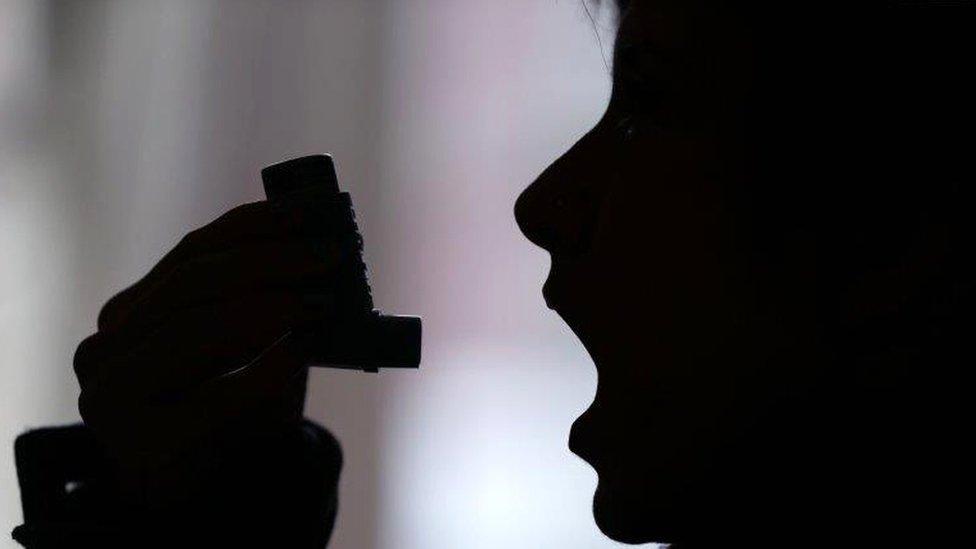Bradford Clean Air Zone: Commercial vehicles face £50 pollution charge
- Published
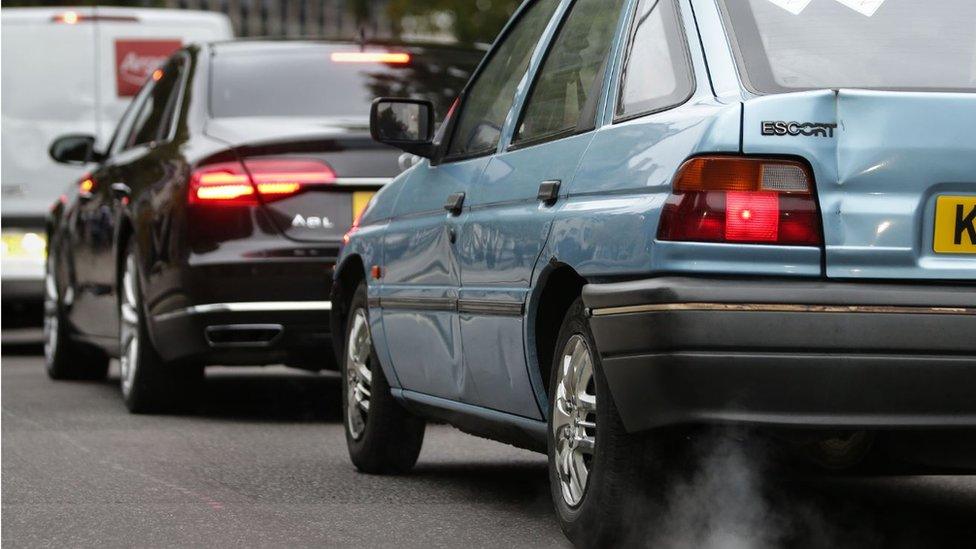
Senior councillors will make a decision on bringing in a Clean Air Zone for Bradford
Owners of commercial vehicles emitting high levels of pollution could be charged up to £50 a day to enter a Yorkshire city centre.
Bradford councillors will vote on the Clean Air Zone (CAZ) scheme in March, and, if approved, trigger a "soft launch" in December.
In 2018 the city council was told by government it needed to cut levels of air pollution.
Neighbouring Leeds scrapped a planned CAZ in 2020.
Derby, Nottingham and Southampton have also dropped similar schemes, but Bath, Birmingham and Bristol are due to introduce their own zones later in 2021.
A scheme for Greater Manchester is also going ahead and is expected be launched in 2022.
Proposals for a scheme in Sheffield are being reviewed to include the impact of Covid-19 on travel patterns.
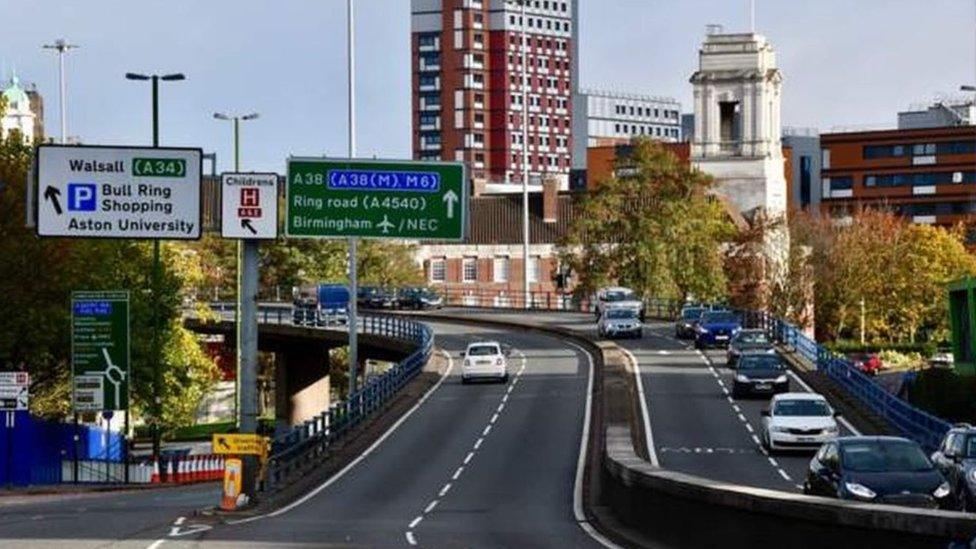
Charges for high-polluting vehicles in Birmingham city centre will come into force from 1 June 2021
Under Bradford's plans, buses, coaches and HGVs which breach pollution levels would face a charge of £50 while taxis would be charged £12.50.
Owners of light good vehicles, such as minibuses, would face a fee of £9.
A report to the council's executive, external shows Bradford has been given £39.3m of government funding to implement the scheme and help vehicle owners switch to greener models.
HGV and bus operators who wish to enter the zone, which covers much of the city centre and the Bradford-Shipley corridor, could claim up to £16,000 per vehicle, said the Local Democracy Reporting Service.
Van and minibus operators would be eligible for upgrades worth a maximum of £4,500.
Of the total fund, around £10m would be set aside for taxi operators with grants of up to £3,200 for private hire vehicles and £4,000 for Hackney carriages.
A network of automated number plate recognition cameras would identify non-compliant vehicles with owners then receiving a charge notice.
Private cars are not included in the plan.
From December, drivers of commercial vehicles which don't meet the "Euro 6" standard would receive a letter informing them the charges will come into force on 4 January 2021, the report says.
The scheme will have a "planned obsolescence" because as more vehicles are upgraded to cleaner technology income will decrease until it is "entirely eliminated", it adds.
Councillors are recommended to approve the plans at a meeting on 2 March.

Follow BBC Yorkshire on Facebook, external, Twitter, external and Instagram, external. Send your story ideas to yorkslincs.news@bbc.co.uk, external.
Related topics
- Published13 October 2020
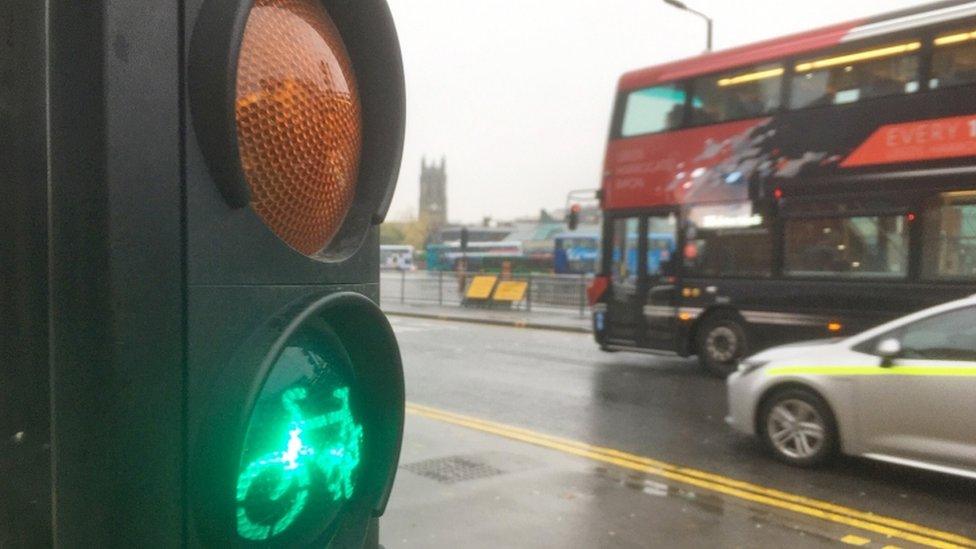
- Published11 September 2020
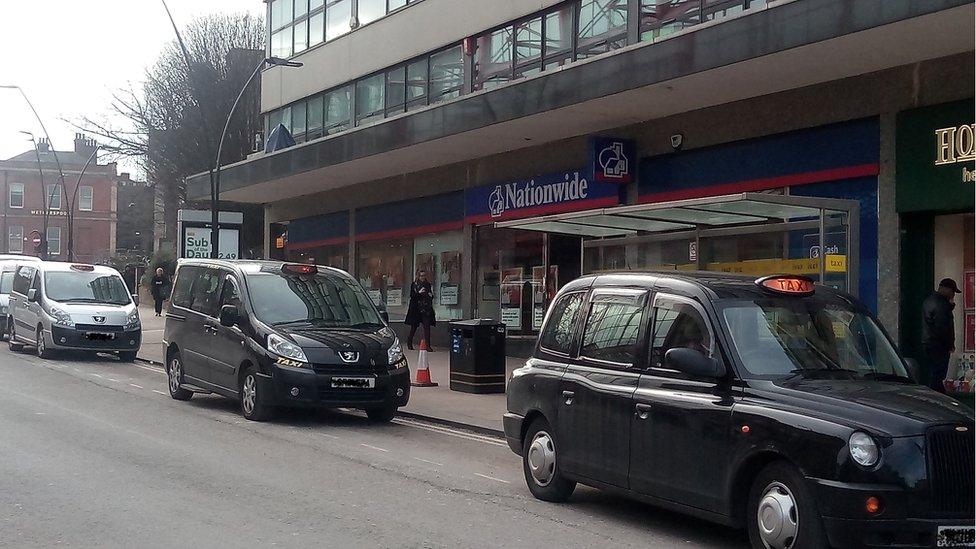
- Published27 March 2018
